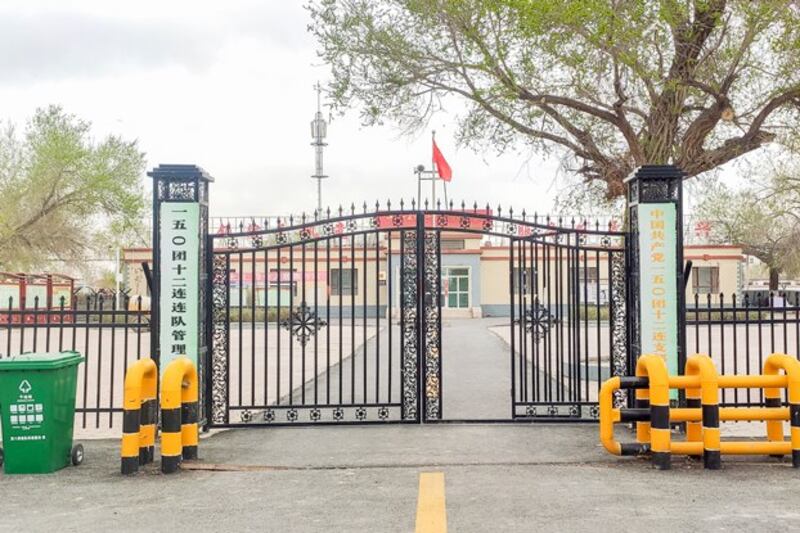Authorities in Xinjiang have banned Uyghurs from using social media apps including Chinese-owned TikTok and tools to circumvent censorship, according to a video released from Chinese police, in what experts say could be the beginning of another major crackdown on the region’s 11 million mostly Muslim Uyghurs.
A video notice about the ban was released April 8 by the Xinjiang Production and Construction Corps, a state-run economic and paramilitary organization also known as Bingtuan that has played a key role in suppressing the Uyghurs.
Violators face arrest, a fine of 15,000 yuan, or US$2,100, and a 40-point deduction under China’s social credit system, which affects people’s access to credit and business opportunities, according to the video.
In addition to TikTok, people are forbidden from downloading and using X, formerly Twitter, and YouTube, and buying and selling on the cryptocurrency platform Bitcoin, it said.
The announcement “suggests a significant likelihood of another round of mass oppression by China,”said Ilshat Hassan Kokbore, vice chairman of the executive committee of the World Uyghur Congress.

Bingtuan police also warned against using virtual private networks, or VPNs, or server accelerator cards, which get around China’s “Great Firewall” of government internet censorship.
Authorities are also broadcasting the warning against using foreign websites and apps across radio stations, televisions and social media platforms in Xinjiang, said a foreign businessman who works in the region, but declined to be named for fear of retribution.
Chinese police are conducting impromptu checks of phones in Uyghur homes and hotels, leading to abductions, he said.
Pivotal role in oppression
Bingtuan police and armed security forces participated in the mass arrests and detentions of Uyghurs and other Turkic minorities in internment camps and prisons that began around 2017, which the United States and some Western parliaments have labeled a genocide.
A December 2023 report by the Uyghur Human Rights Project on the police surveillance structure in Xinjiang identifies the People’s Armed Police and the Bingtuan as the primary perpetrators of the Chinese Communist Party’s genocide against the Uyghurs.
The latest ban came after a special meeting recently convened by Xinjiang’s Communist Party Committee, which stressed the need for “strictly maintaining secrecy related to Xinjiang.”
Sophie Richardson, former director of China affairs at Human Rights Watch, said the new ban could indicate the failure of Chinese policies in Xinjiang.
“If the Chinese government really thought its policies were working well in the region, these kinds of threats and constraints simply wouldn’t exist,” she said.
Surveillance apps
The new cyber restrictions are nothing new in Xinjiang.
By 2016, Chinese police had forced people in the region to install government surveillance apps on their cellphones and computers.
The following year, the Chinese government began a large-scale arrest operation based on WeChat activity records of Uyghurs and other Muslim ethnic groups.

According to news reports, China has amassed comprehensive information on Uyghurs in a large database and can monitor and track them around the clock.
Geoffrey Cain, a senior research fellow and policy director of the Tech Integrity Project and author of the book “The Perfect Police State,” said crackdowns always “start with apps,” but he added that the CCP itself has mastered the use of apps to collect data on China’s entire population.
“They learned to do it with the use of concentration camps, and to put people in those concentration camps they used mass data gathering from their apps,” he told RFA.
Chinese public security authorities have required Uyghurs with personal computers and smartphones to install “anti-fraud” spyware on devices.

Now if someone tries to download foreign social media apps such as X or to use a VPN, the software immediately alerts police, who have the authority to freeze users’ bank accounts and terminate their phone service, Cain said.
Forcing people in Xinjiang and the rest of China to install spy apps shows that Chinese authorities are worried about political stability and they want to create a total security state by seeing “every person’s thinking, every person’s ideology,” he said.
Denying the Uyghur genocide
Kokbore pointed out that Chinese government officials widely use social media platforms such as TikTok, X and Facebook to deny the Uyghur genocide.
“China is putting efforts to conceal the ethnic genocide in the Uyghur region by tightly controlling information and punishing Uyghurs arbitrarily,” he said.
Kokbore also noted the presence of X accounts with Uyghur profile photos that promote the Chinese government’s narrative of Uyghurs living happy lives under Chinese policies. Chinese reporters then use such platforms to conceal the atrocities.
Some U.S. lawmakers and government officials have determined that TikTok, a subsidiary of Chinese company ByteDance, poses a threat to U.S. national security.
The U.S. House of Representatives on March 13 passed legislation that will ban TikTok in the United States unless its parent company can find a buyer for it. To become law, the bill must clear the Senate, where other efforts to ban the short-video app have stalled.
Translated by RFA Uyghur. Edited by Roseanne Gerin and Malcolm Foster.

